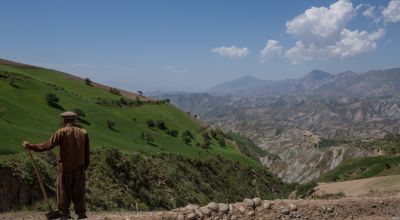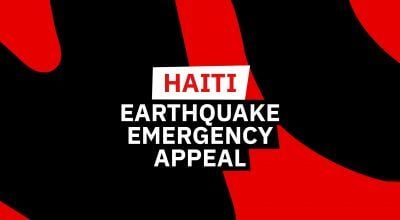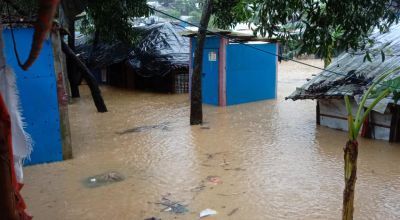
Read our 2024 annual report

Knowledge Hub
On World Humanitarian Day, Concern Chief Executive Dominic MacSorley reflects on the world's 'make or break' year and the unprecedented challenges facing humanitarians across the globe
On 19 August 2003, the first year of the Iraq War, a deadly terrorist attack hit the United Nations headquarters in Baghdad, killing 22 people. Among those who lost their lives was Sergio Vieira de Mello, the UN’s top representative in Iraq. Five years later, the General Assembly adopted Resolution 63/139 designating 19 August as World Humanitarian Day.
Since 2009, World Humanitarian Day has evolved from a day to recognise those who have lost their lives working for humanitarian causes into a global campaign to advocate for the survival, wellbeing and dignity of people affected by crises, and for the safety and security of aid workers.
Sadly, this year, World Humanitarian Day could not be more relevant. In the last week, Afghanistan has become convulsed by extreme turmoil, while Haiti has been rocked by another devastating earthquake. All around the world, the lives and livelihoods of the most vulnerable people are still being decimated by the COVID-19 pandemic, as access to vaccines remain elusive for most people in lower income countries and the Delta Variant continues to spread.

Against this stark backdrop, the scourge of conflict is still the greatest driver of humanitarian needs, and also the greatest danger to humanitarian workers trying to meet those needs.
The Aid Worker Security Data Base reports that last year, 475 aid workers were attacked, including 108 who were killed, 242 seriously injured and 125 kidnapped, with the vast majority of victims originating from the country where they were attacked. Increasingly, humanitarian actors are prevented from reporting on or speaking out about crises, in order to safeguard access and to protect staff and those they work with. At a time of such incredibly heightened humanitarian need, the commitment to stay and deliver is of paramount importance.
We are at a truly grave moment in time, but we also know that an even more severe and widespread humanitarian crisis is worsening rapidly around the world. 2021 has shown us, all too dramatically, the soaring human toll of the climate crisis.
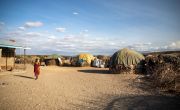
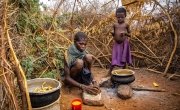
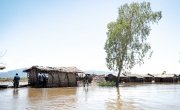
The most recent Intergovernmental Panel on Climate Change (IPCC) Report, published last week, underlined the urgency of taking global action to avoid a complete climate catastrophe, but time is already running out for so many of those who have contributed least to the global climate emergency. In Madagascar, for example, the impact of extreme drought worsened by the climate crisis has now become so severe that it is a key driver in pushing the country towards famine.
With most climate campaigns focused on slowing climate change and securing the planet’s future, this year’s World Humanitarian Day on the 19 August will highlight the immediate humanitarian consequences of climate change, and will pressure world leaders to take meaningful action for the world’s most vulnerable people when they meet at the UN Climate Change Conference (COP26) in November.

Right now, the deadly combination of conflict, climate breakdown and the COVID-19 pandemic is taking us back to a world we thought we had left behind; extreme poverty has risen for first time in 20 years, and famine - something we thought we had consigned to history - is back.
The UN Secretary-General has said that 2021 is the world’s ‘make-or-break year’, calling for a major breakthrough to slow the pace of climate change, but also for an urgent and sustained push to help build resilience to the impact of climate change around the world. For the communities who have done least to cause climate change but are being hit first and hardest by its impacts, it is the absolute least we can do.
“The climate emergency is a race we are losing, but it is a race we can win” -- António Guterres, UN Secretary-General
Find out more
Our teams are working hard to support those who are being affected the most by the climate crisis. Click below to read more about how our climate and environment programme are supporting communities to protect their livelihoods and build their resilience.



